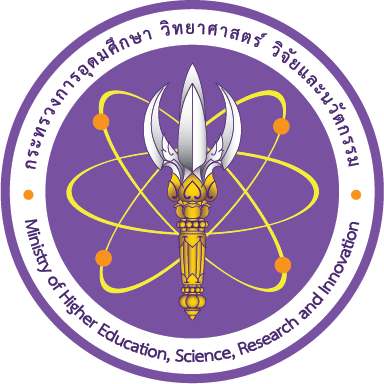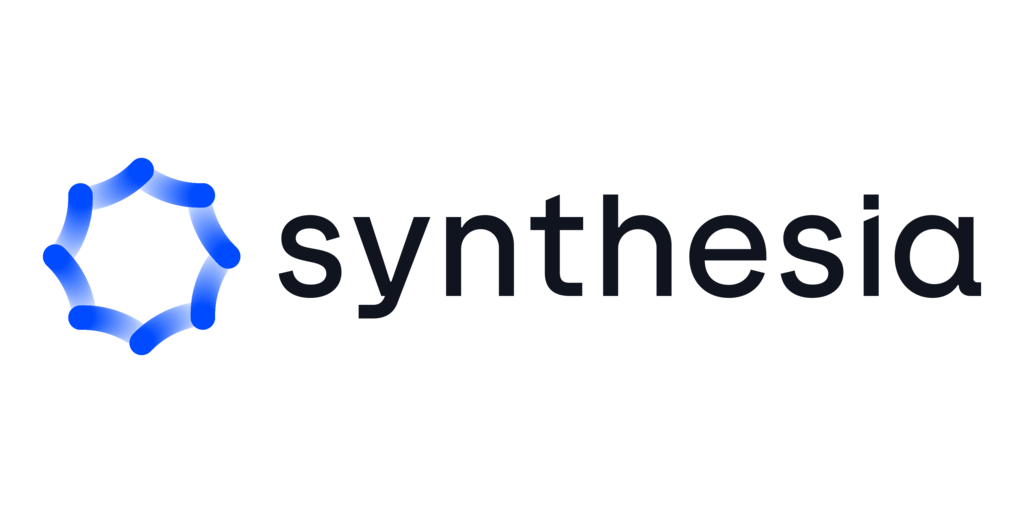มาตรการพื้นฐานในการป้องกันไวรัสโคโรนาชนิดใหม่
ข้อมูลจาก WHO (ณ วันที่ 16 ก.พ. 2563)
https://www.who.int/emergencies/diseases/novel-coronavirus-2019/advice-for-public
แปลโดย ฝ่ายสร้างสรรค์สื่อและผลิตภัณฑ์, สำนักงานพัฒนาวิทยาศาสตร์และเทคโนโลยีแห่งชาติ (สวทช.)
ให้ติดตามข่าวสารล่าสุดเกี่ยวกับการระบาดของโควิด-19 ได้จากเว็บไซต์ขององค์การอนามัยโลก และผ่านทางหน่วยงานที่รับผิดชอบด้านสาธารณสุขในพื้นที่หรือระดับประเทศของท่าน โดยส่วนใหญ่แล้ว โควิด-19 ยังคงส่งผลกระทบกับคนในประเทศจีน และมีการระบาดอยู่บ้างในประเทศอื่นๆ คนส่วนใหญ่ที่ติดเชื้อมีอาการป่วยไม่รุนแรงและหายป่วย แต่มีบางรายที่ป่วยรุนแรง ดูแลปกป้องสุขภาพของตัวเองและป้องกันผู้อื่น โดยการทำดังต่อไปนี้:
- ล้างมือบ่อยๆ
ล้างมืออยู่เรื่อยๆ และทำความสะอาดมืออย่างทั่วถึง ด้วยสารที่มีแอลกอฮอล์ผสม หรือล้างด้วยสบู่และน้ำ
ทำไม? การล้างมือด้วยสบู่และน้ำ หรือใช้สารที่มีแอลกอฮอล์ผสม ช่วยฆ่าไวรัสที่อาจจะมีอยู่บนมือได้ - รักษาระยะห่างทางสังคม
พยายามอยู่ห่างจากคนอื่น ที่อาจจะไอหรือจาม อย่างน้อย 1 เมตร (3 ฟุต)
ทำไม? เมื่อมีใครไอหรือจาม จะมีละอองฝอยของเหลวขนาดเล็กพุ่งกระจายออกจากจมูกหรือปากของผู้นั้น ซึ่งอาจมีไวรัสอยู่ หากคุณอยู่ใกล้ชิดมากเกินไป ก็อาจจะหายใจเอาละอองฝอยเหล่านั้น รวมทั้งไวรัสโควิด-19 เข้าไปได้ หากว่าคนผู้นั้นติดเชื้ออยู่ - หลีกเลี่ยงการสัมผัสตา, จมูก หรือปาก
ทำไม? มือที่สัมผัสพื้นผิวสิ่งต่างๆ มากมาย อาจจะติดเอาไวรัสมาได้ ครั้นเมื่อติดเชื้อมาแล้ว มือนั้นก็อาจจะถ่ายทอดไวรัสต่อไปยังตา, จมูก หรือปาก ต่อไปได้ จากนั้น ไวรัสดังกล่าวก็อาจจะเข้าสู่ร่างกายและทำให้คุณป่วยได้ - ฝึกฝนการรักษาอนามัยเกี่ยวกับระบบหายใจ
พยายามรักษาอนามัยเกี่ยวกับระบบหายใจให้ถูกวิธี ทั้งกับตัวคุณเองและผู้คนรอบๆ ตัวคุณ ซึ่งก็รวมทั้งการปิดปากและจมูกด้วยข้อศอกหรือกระดาษทิชชู่ เวลาที่ไอหรือจาม จากนั้น ทิ้งทิชชู่ที่ใช้แล้วในทันที
ทำไม? ละอองฝอยช่วยกระจายไวรัส การปฏิบัติตามอนามัยเกี่ยวกับระบบหายใจที่ดี ช่วยให้คุณปกป้องผู้คนรอบตัวจากไวรัส เช่น ไวรัสไข้หวัด, ไข้หวัดใหญ่ และโควิด-19 ได้ - หากคุณมีไข้, ไอ และหายใจลำบาก ไปพบแพทย์เพื่อรักษาแต่เนิ่นๆ
ให้พักอยู่บ้าน หากรู้สึกไม่สบาย หากมีไข้, ไอ และหายใจลำบาก โทรศัพท์ปรึกษาแพทย์ล่วงหน้า และไปพบแพทย์ โดยทำตามแนวทางที่กำหนดโดยหน่วยงานที่รับผิดชอบสาธารณสุขในพื้นที่ของคุณ
ทำไม? หน่วยงานที่รับผิดชอบในพื้นที่และระดับประเทศ จะมีข้อมูลที่ทันสมัยที่สุดเกี่ยวกับสถานการณ์ในพื้นที่ของคุณ การโทรศัพท์ติดต่อไปล่วงหน้าจะช่วยให้ผู้ให้การดูแลรักษาสามารถนำตัวคุณไปยังสถานพยาบาลได้อย่างรวดเร็ว ซึ่งจะช่วยป้องกันตัวคุณเอง และช่วยป้องกันไม่ให้มีการแพร่กระจายของไวรัส และเกิดการติดเชื้ออื่นๆ เพิ่มขึ้น - ติดตามข่าวสารและทำตามคำแนะนำของผู้ให้การรักษาพยาบาล
ติดตามข่าวสารล่าสุดเกี่ยวกับโควิด-19 ทำตามคำแนะนำของผู้ให้การรักษาพยาบาล, หน่วยงานที่รับผิดชอบด้านสาธารณสุขระดับพื้นที่และระดับประเทศหรือนายจ้างของคุณ เกี่ยวกับวิธีการป้องกันตัวเองและผู้อื่นจากโควิด-19
ทำไม? หน่วยงานที่รับผิดชอบด้านสาธารณสุขระดับพื้นที่และระดับประเทศ จะมีข้อมูลล่าสุดเกี่ยวกับการกระจายของโควิด-19 ในพื้นที่ของคุณ พวกเขาจะให้คำแนะนำกับคนในพื้นที่ได้ดีที่สุดว่า ควรจะทำอย่างไรบ้างจึงจะป้องกันตัวเองได้
มาตรการป้องกันสำหรับผู้ที่ไปในพื้นที่ที่มีการระบาดของโควิด-19
เมื่อเร็วๆ นี้ (ใน 14 วันที่ผ่านมา)
- ทำตามแนวทางที่กล่าวไว้ข้างต้น
- อยู่กับบ้านหากรู้สึกไม่สบาย, แม้ว่าจะจะมีอาการเพียงเล็กน้อย เช่น ปวดหัว หรือมีน้ำมูกเล็กน้อย จนกว่าจะหาย ทำไม? เพื่อหลีกเลี่ยงการสัมผัสกับผู้อื่นและลดผู้ไปยังสถานรักษาพยาบาล เพื่อช่วยให้การดูแลรักษาพยาบาลทำได้อย่างมีประสิทธิภาพมากขึ้น และยังช่วยป้องกันไม่ให้ตัวคุณเองและผู้อื่นจากโอกาสติดเชื้อโควิด-19 และไวรัสอื่นๆ อีกด้วย
- หากมีไข้, ไอ หรือหายใจลำบาก ให้ไปพบแพทย์ในทันที เพราะอาจแสดงให้เห็นถึงการติดเชื้อของระบบหายใจ หรือสภาวะความเจ็บป่วยที่ร้ายแรงอื่นๆ, กรุณาโทรศัพท์ไปแจ้งก่อนล่วงหน้า และแจ้งกับสถานพยาบาลด้วยว่า เคยไปยังสถานที่ท่องเที่ยวหรือสัมผัสกับนักท่องเที่ยวมาก่อนเมื่อไม่นานมานี้ ทำไม? การโทรศัพท์ล่วงหน้าจะช่วยให้สถานพยาบาลช่วยนำคุณไปรักษาในบริเวณที่จัดเตรียมไว้ได้อย่างถูกต้องเหมาะสม ซึ่งจะช่วยป้องกันโอกาสที่จะเกิดการแพร่กระจายของโควิด-19 และไวรัสอื่นๆ ได้
แหล่งที่มาของข้อมูล : ข้อมูลจาก WHO (ณ วันที่ 16 ก.พ. 2563) https://www.who.int/emergencies/diseases/novel-coronavirus-2019/advice-for-public
Basic protective measures against the new coronavirus
Stay aware of the latest information on the COVID-19 outbreak, available on the WHO website and through your national and local public health authority. COVID-19 is still affecting mostly people in China with some outbreaks in other countries. Most people who become infected experience mild illness and recover, but it can be more severe for others. Take care of your health and protect others by doing the following:
- Wash your hands frequently
Regularly and thoroughly clean your hands with an alcohol-based hand rub or wash them with soap and water.
Why?Washing your hands with soap and water or using alcohol-based hand rub kills viruses that may be on your hands. - Maintain social distancing
Maintain at least 1 metre (3 feet) distance between yourself and anyone who is coughing or sneezing.
Why?When someone coughs or sneezes they spray small liquid droplets from their nose or mouth which may contain virus. If you are too close, you can breathe in the droplets, including the COVID-19 virus if the person coughing has the disease. - Avoid touching eyes, nose and mouth
Why? Hands touch many surfaces and can pick up viruses. Once contaminated, hands can transfer the virus to your eyes, nose or mouth. From there, the virus can enter your body and can make you sick. - Practice respiratory hygiene
Make sure you, and the people around you, follow good respiratory hygiene. This means covering your mouth and nose with your bent elbow or tissue when you cough or sneeze. Then dispose of the used tissue immediately.
Why?Droplets spread virus. By following good respiratory hygiene you protect the people around you from viruses such as cold, flu and COVID-19. - If you have fever, cough and difficulty breathing, seek medical care early
Stay home if you feel unwell. If you have a fever, cough and difficulty breathing, seek medical attention and call in advance. Follow the directions of your local health authority.
Why?National and local authorities will have the most up to date information on the situation in your area. Calling in advance will allow your health care provider to quickly direct you to the right health facility. This will also protect you and help prevent spread of viruses and other infections. - Stay informed and follow advice given by your healthcare provider
Stay informed on the latest developments about COVID-19. Follow advice given by your healthcare provider, your national and local public health authority or your employer on how to protect yourself and others from COVID-19.
Why?National and local authorities will have the most up to date information on whether COVID-19 is spreading in your area. They are best placed to advise on what people in your area should be doing to protect themselves.
Protection measures for persons who are in or have recently visited (past 14 days) areas where COVID-19 is spreading
- Follow the guidance outlined above.
- Stay at home if you begin to feel unwell, even with mild symptoms such as headache and slight runny nose, until you recover. Why? Avoiding contact with others and visits to medical facilities will allow these facilities to operate more effectively and help protect you and others from possible COVID-19 and other viruses.
- If you develop fever, cough and difficulty breathing, seek medical advice promptly as this may be due to a respiratory infection or other serious condition. Call in advance and tell your provider of any recent travel or contact with travelers. Why? Calling in advance will allow your health care provider to quickly direct you to the right health facility. This will also help to prevent possible spread of COVID-19 and other viruses.










